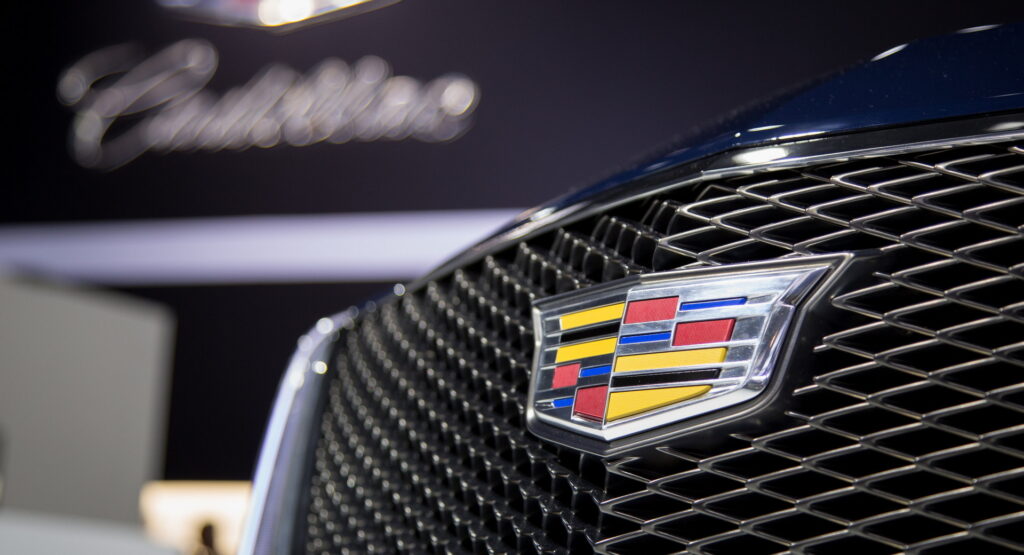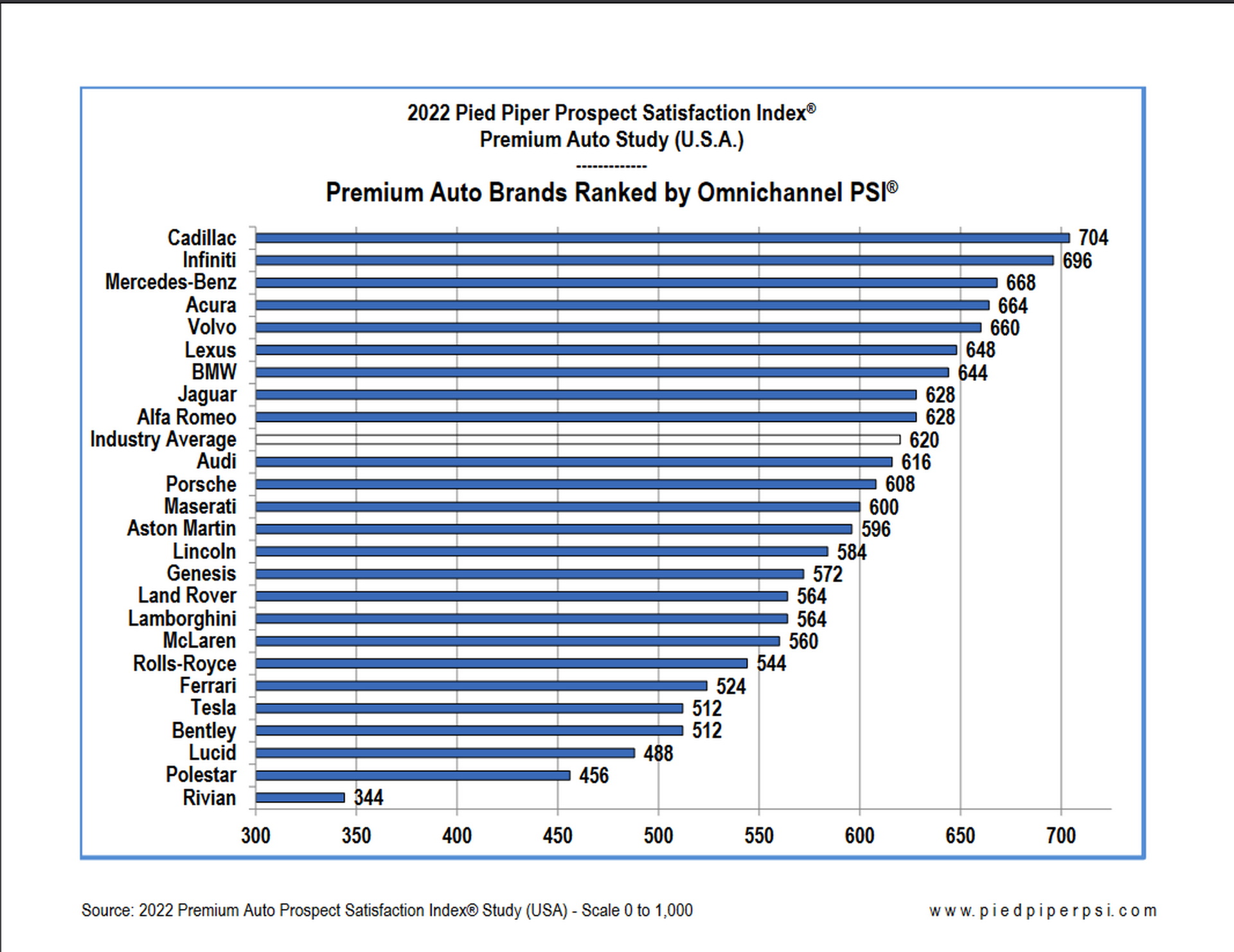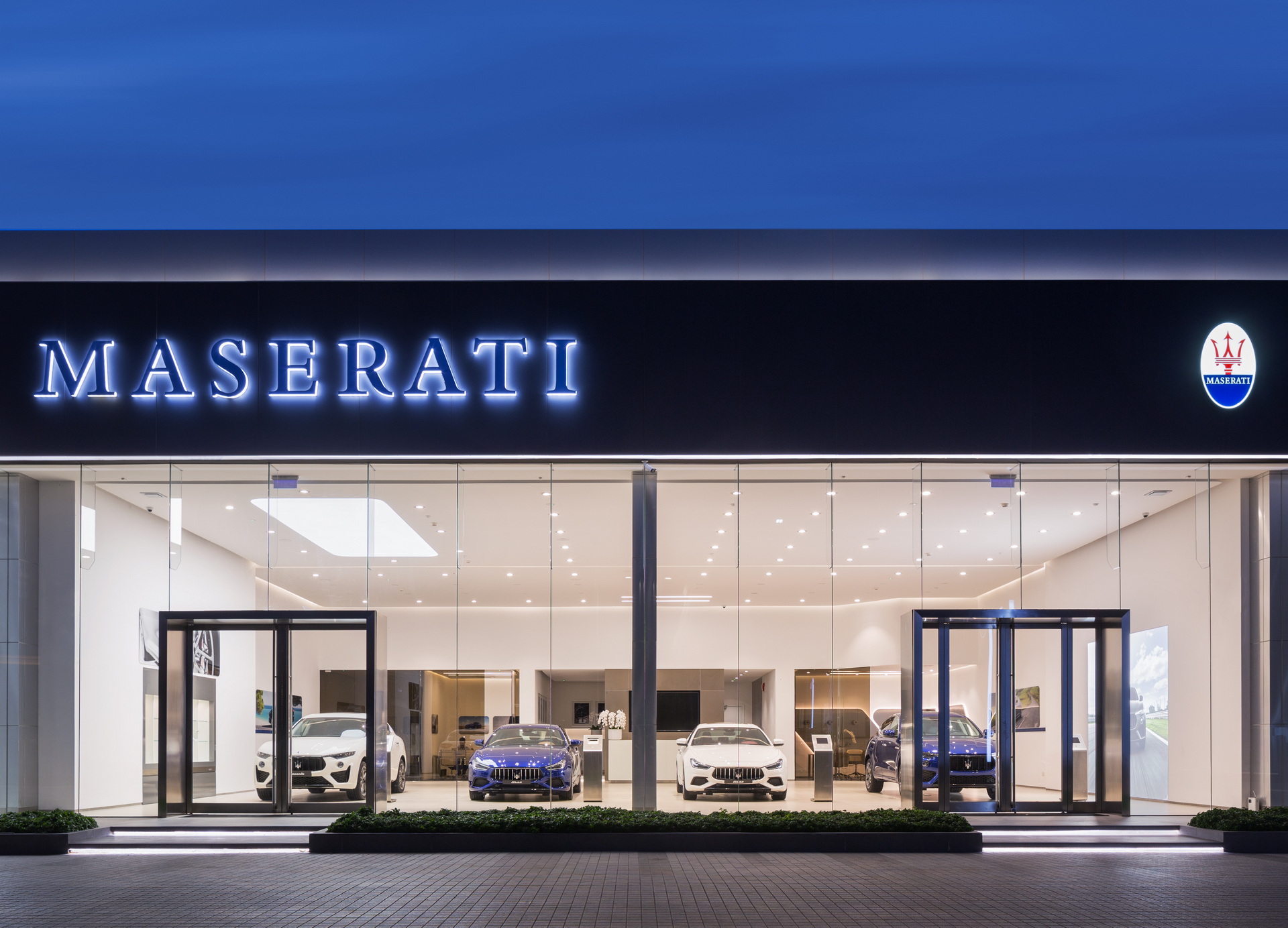Cadillac topped a recent study of helpfulness in both online and in-person shopping experiences. It led its premium competitors, as well as new-school EV and old-school exotic manufacturers in the study conducted by Pied Piper.
The Prospect Satisfaction Index sought to measure how well automakers help customers through the shopping experience. The study started by measuring how responsive to customers automakers were online, and continued to how much information dealers (or retail locations) can provide when people visited in person.
“Nearly all customers today start their car-shopping online. But most shoppers also still prefer to experience and evaluate a vehicle in person, if given the opportunity,” said Fran O’Hagan, CEO of Pied Piper. “Some shoppers know exactly what they want, but most still have questions or want to experience a test drive. Brands most helpful to both types of shoppers are the ones most likely to appeal long-term to all customers.”
Read Also: New Car Buying Will Change As Order-And-Wait Process Becomes The Norm
Cadillac succeeded in both areas, effectively helping buyers in the 22 best-practice behaviors online and 50 best-practices in person in which brands were measured. Responsiveness to online inquiries was worth 40 percent of an automaker’s score, while in-person experiences made up 60 percent of the score. The companies were also not penalized if they didn’t have a vehicle present for customers to try.
That may help explain why EV brands like Rivian and Lucid, which have no dealer network, did not rank as highly as brands like Cadillac and Mercedes. Although the EV companies had good online presences, the study’s authors found that they had much room for improvement overall.
“With an online focus and few retail locations, these new EV brands have a great opportunity to excel with phone, chat, and email interactions with their customers, to compensate for the customer’s lack of an in-person experience,” O’Hagan said. “However, we have found that when their customers reach out for help or with questions, they are usually met with brand reps who answer only simple, scripted questions without being proactively helpful. It’s a missed opportunity that does not currently compensate for the missing retail experience.”
Tesla, meanwhile, once highly ranked in this index, has slipped below average. O’Hagan claimed that the company’s attitude now appears to be to make vehicles easy to order, but not to focus on actually helping customers.
For the first time, the Prospect Satisfaction Index also included exotic manufacturers like Ferrari, Maserati, and McLaren.
“There is quite a lot of variability in the performance of the exotic brands,” O’Hagan said. “For example, Ferrari dealers would be ranked highly, sixth of the 25 brands, for their customers’ in-person experience, but they are near the bottom for responding to website customer inquiries. In contrast, Maserati dealers excel at website response, but trail most of the industry for their customers’ in-dealership experience.”






